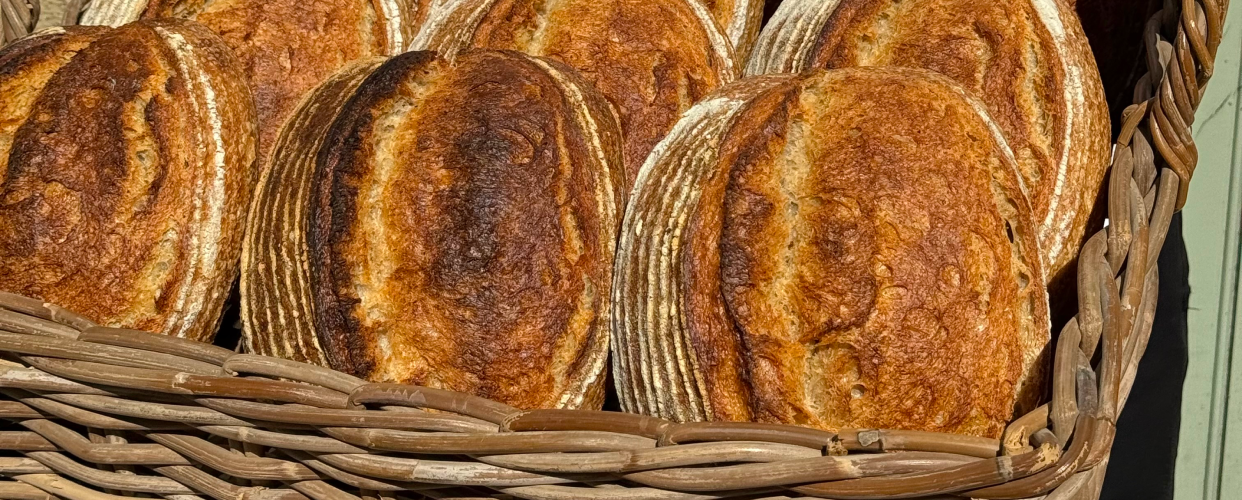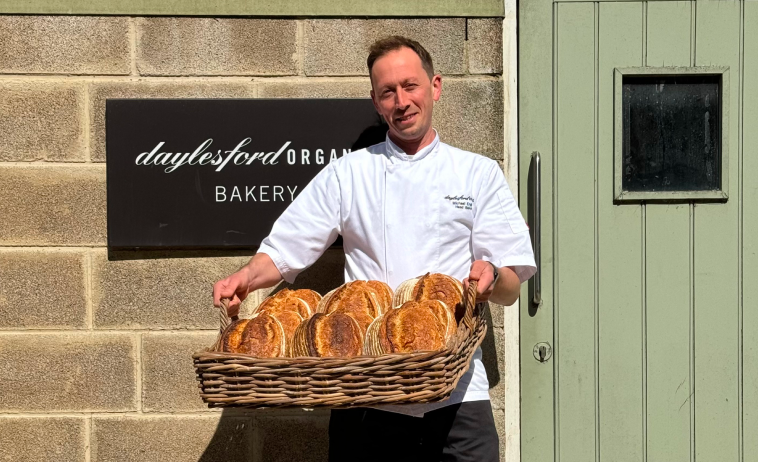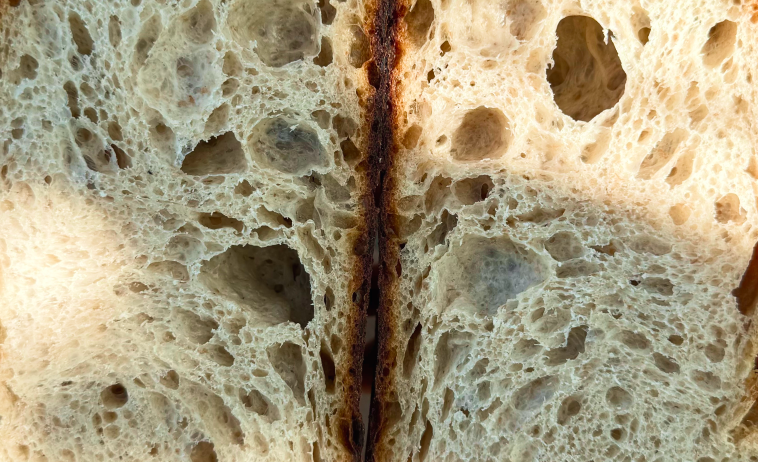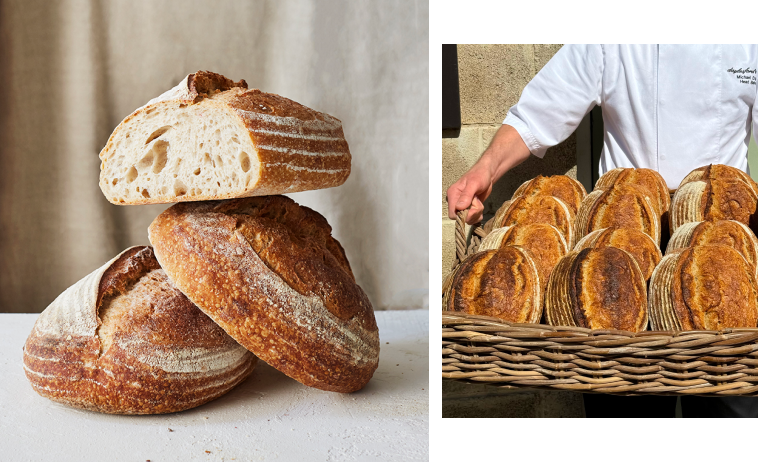
The Story of our Award Winning White Sourdough
Simple, delicious and versatile; freshly baked bread has been a cornerstone of our diets for centuries. At Daylesford, our hand-made Organic White Sourdough – made using no more than the basic ingredients loaves have traditionally been baked with – won ‘Plain Sourdough’ at Britain’s Best Loaf Award 2025.
THE STORY OF OUR AWARD-WINNING SOURDOUGH
Judges of the Britain’s Best Loaf Awards, who tasted each loaf ‘blind’ enjoyed our Organic White Sourdough’s “open crumb and great taste.” We asked our executive baker, Michael Engler what makes our sourdough special. Our Organic White Sourdough is a Daylesford staple, and often the first to leave our farmshop shelves. "It's a great, all-round loaf", says our Michael. "It doesn't have a really open structure - so you can use it to make toast and all the butter doesn't fall through, and it’s also perfect for a sandwich."


OUR AWARD-WINNING TEAM
Michael Engler, our executive baker leads a dedicated team of eight artisans. Five of any of the bakers make between 150 and 250 White Sourdough loaves every night, ensuring a seven day a week production in our Bakery located on our Cotswold Farm. Their shift starts around 4pm in the afternoon, finishing at 1.30 in the morning so that the freshly baked bread can reach our farmshops, restaurants, pubs and cafes the same morning. “The team are all passionate about bread” he says. “They’re always talking to each other to make sure each batch is as perfect and consistent as it can be – it’s a reactive process; the bread is different every day.” Our skilled baking team have also received awards for our Organic Fruit Bread and Organic Seven Seed Sourdough, whilst their focaccia and Organic Pumpernickel are among customer favourites.


IT ALL STARTS WITH A ‘STARTER’
A ‘starter’ is key to an authentic sourdough. When our executive baker, Michael joined Daylesford Organic more than three years ago, he bought his trusted white sourdough leaven with him from home to develop our existing recipe. “It’s about twenty years old” he says. “A starter doesn’t need to be old if you’re home-baking but I was confident my starter would produce consistent batches for selling in quantity.” Michael also uses a second dark rye starter, made from coarsely milled wholemeal rye flour in the White Sourdough “when it rises it has an open honeycomb structure, and it gives the bread a nice tangy flavour.” The combination of using two different starters, which develop using a slow, cold fermentation process is one of the secrets to our delicious loaves.


WHAT IS SOURDOUGH?
Whilst Neolithic man is thought to have first ground grains with stones, historians generally agree that the Egyptians developed the art of baking leavened bread with naturally occurring yeast. In essence, this was the first sourdough – bread made with a slow fermentation process – using the good bacteria created when flour comes into contact with water as a natural rising agent.
In the nineteenth century, American gold miners baked Sourdough in their camps during the Californian Gold Rush as a durable food source that sustained them. They are believed to have carried around sourdough starter in their pockets as they worked, baking bread on open fires when they finished – hence the bread being coined San Franciscan Sourdough.
All bread was made with naturally occurring yeast until the production of commercial yeast in the nineteenth century. Fast acting yeast enables quick production by shortening bread’s leavening process, whilst preservatives and additives are used to artificially inject flavour and enhance shelf life.
In contrast, sourdough is made using the natural timescale of proving. We have been making sourdough in the traditional way since we opened our Cotswold farm shop in 2002. Our authentic sourdough contains just three ingredients – locally sourced, organic white flour from Shipton Mill, water and salt - plus our home-grown starters, ensuring it has a subtle chewiness and tang. The magic comes from these, along with the traditional way our artisan bakers make the bread with care.


BETTER FOR OUR HEALTH
Baking good, natural sourdough bread takes time, care and skill. The slow fermentation process negates the need for artificial emulsifiers to be added which are damaging to the gut. An organic sourdough loaf is easier to digest than a commercially made loaf and it is more nutritious. By their nature, certified organic loaves are unable to contain toxic ingredients including additives and preservatives included in many bread products. During the slow fermentation process important nutrients such as iron, zinc and magnesium, folic acid and other B vitamins, become easier for our bodies to absorb.
At Daylesford we’re passionate about keeping the artisan tradition of good bread making alive and thriving – for our health today and for the next generation. Ensuring the timeless simplicity of a good, honest loaf.


